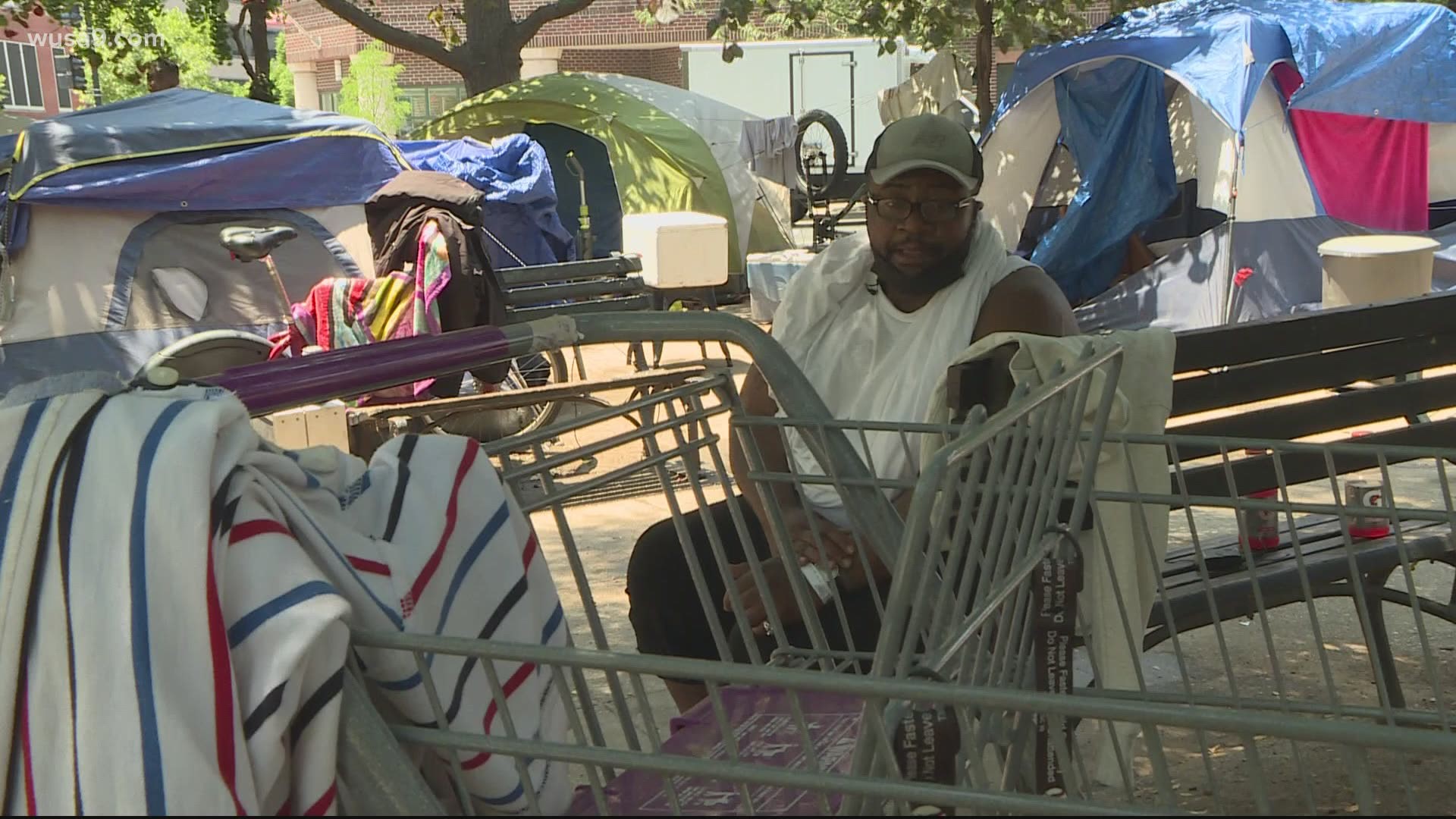WASHINGTON — When people think about helping the homeless population, it usually involves coat drives, soup kitchens and raising money for homeless shelters. Very rarely do people consider the impact that weather, especially hot weather, can have on the livelihood of this unspoken group of people.
As dangerous temperatures and unplanned heatwaves sweep the nation, the U.S has experienced a record-breaking heat phenomenon, that even science is trying to piece together.
According to an Intergovernmental Panel on Climate Change (IPCC) report released Monday, the earth is becoming so hot that temperatures in about a decade will probably blow past a level of warming. The United Nations is now calling it a “code red for humanity.”
“It’s just guaranteed that it’s going to get worse,” report co-author Linda Mearns, a senior climate scientist at the U.S. National Center for Atmospheric Research told the Associated Press. “I don’t see any area that is safe ... Nowhere to run, nowhere to hide.”
Meanwhile, one of the country's most vulnerable populations is out in sweltering temperatures trying to stay alive. According to the Centers for Disease Control and Prevention (CDC), heat is the top weather-related killer in the country and an average of over 600 people die from extreme heat every year.
And unfortunately, recent data by the U.S. Department of Housing and Urban Development (HUD) stated that the number of individuals who live unsheltered, such as on the street, in abandoned buildings, or in other places not suitable for human habitation, has increased.
It doesn't just stop there. Washington D.C. has one of the highest homeless populations, according to the 2019 Point-in-Time (PIT) Count of Persons Experiencing Homelessness in the District of Columbia.
So how can the people of the DMV help? Well, let's start by removing the stereotypes and put humanity first during this global heatwave.
If you see a homeless person on the street seeking assistance due to extreme heat, you can call the jurisdiction's shelter/homeless hotline that is available 24/7. When calling, you should include the time, the address or location of the sighting, and a description of the person’s appearance.
District: 202-399-7093 or dial 311
Maryland: 1-888-731-0999 or 301-864-7095
D.C. Mayor Muriel Bowser has recently released a plan called Homeward 2.0 to end homelessness in D.C. In the plan, Bowser is pushing for housing for D.C.'s homeless population. The budget set aside for the plan is expected to help nearly 3,500 people suffering with homelessness.

